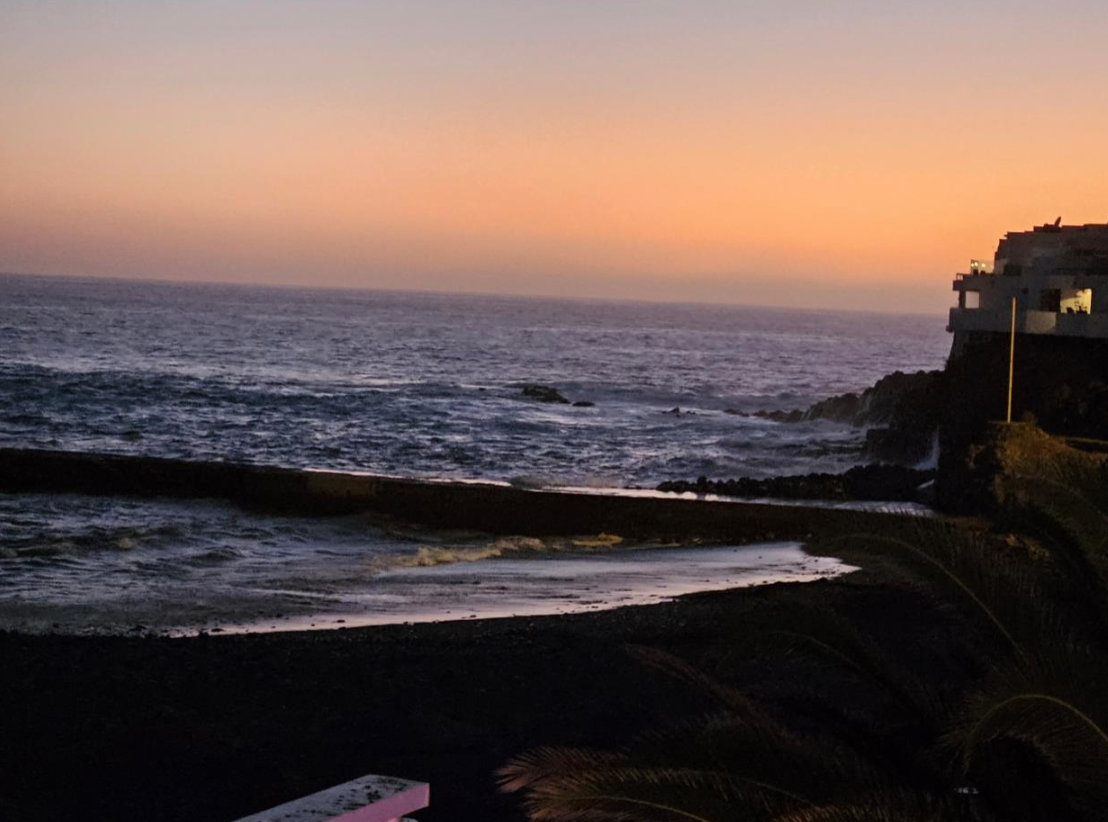Pastoral Visit to the Canary Islands
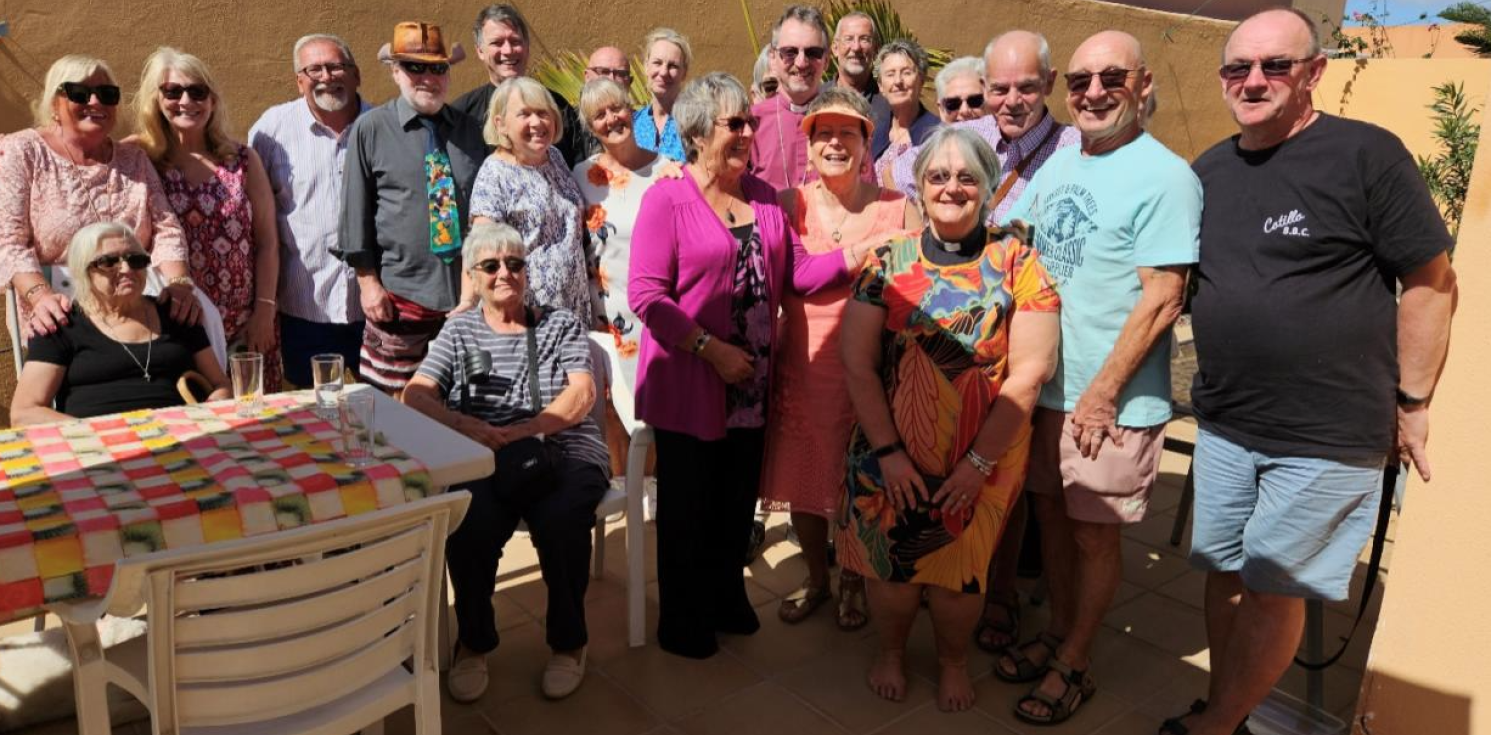
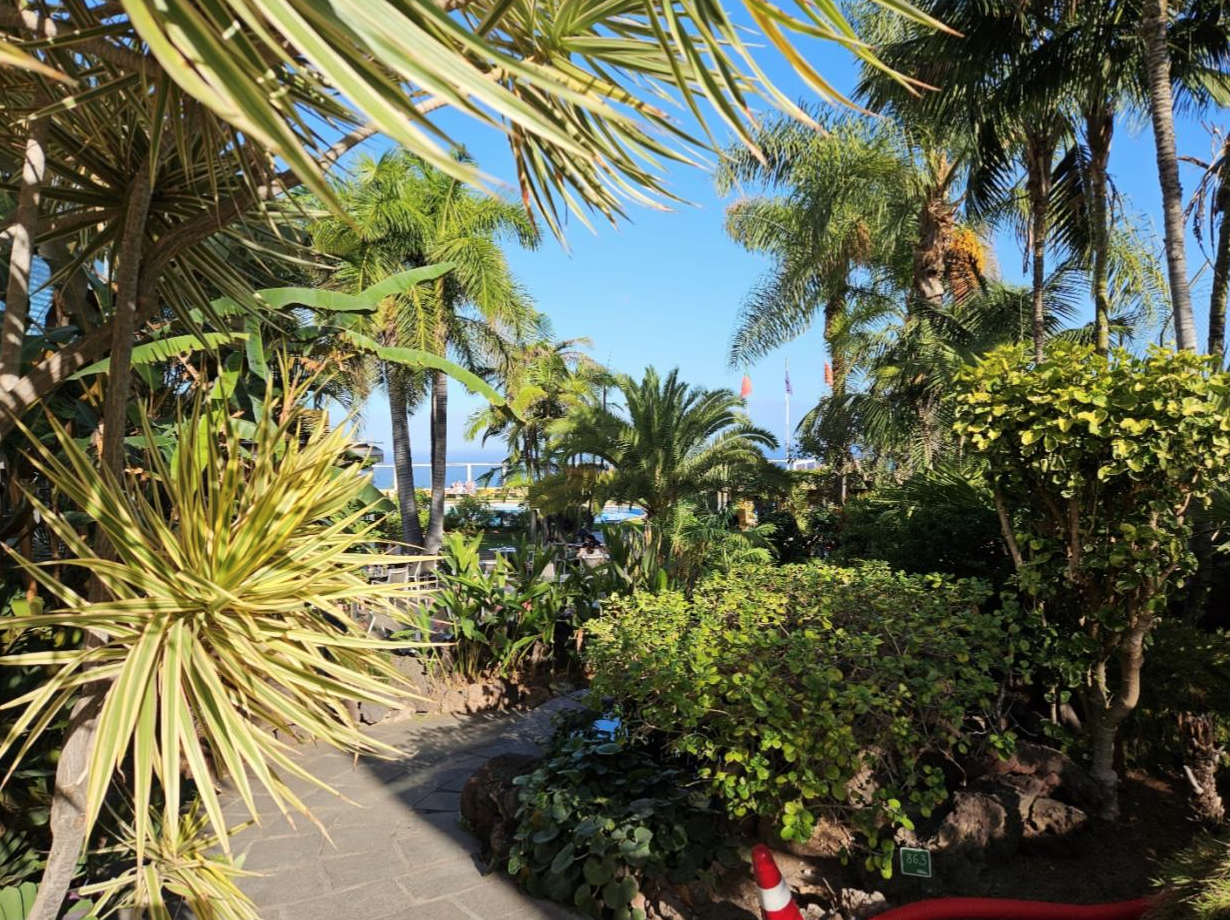
I was rather coy about letting my colleague English bishops know that I was setting out on a pastoral visit to the Canary Islands. Indeed, at Brussels Airport, those heading to Gran Canaria were to a man and a woman dressed for leisure not business. But this was a proper pastoral visit, albeit to a region known as a wonderful winter holiday destination for those seeking to escape the cold and wet of northern Europe in search of the sun.
I had two main reasons for visiting in February 2024. Firstly, Bishop David retires at the end of this month. He has been lead bishop for the Canaries, and now after nearly 10 years as diocesan bishop it was right that I made a proper acquaintance with this most southerly part of the Diocese. Secondly, we have recently made several key appointments to these islands, and I was keen to see that our new clergy were settling in well.
The four and a half hour flight testifies to the distance involved. The Canaries are much further away from Brussels than, for example, Helsinki to the north or Moscow to the East. But these islands are a magnet for European visitors, perhaps especially the British.
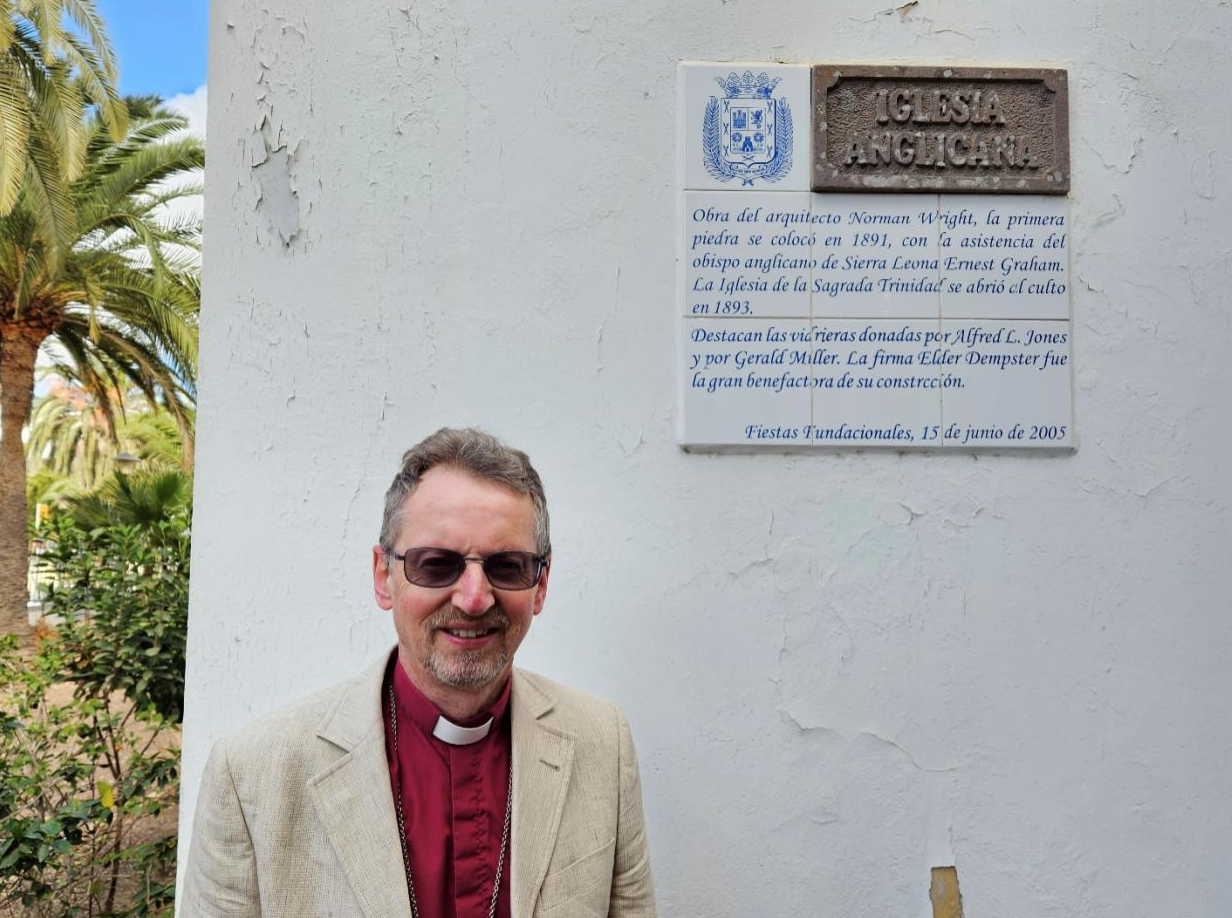
After arriving safely at Las Palmas we met up with Archdeacon David Waller and then headed for the Anglican Church of the Holy Trinity. It was founded over 100 years ago, and consecrated by the then Bishop of Sierra Leone, Ernest Graham. We met The Revd David Brown and his wife Hanna, fairly recently arrived from Warsaw. I was thrilled to hear how well regarded David’s ministry is.
We gathered in the porch of the church, which being half inside and half outside is conveniently cool and a great place to meet and mingle. We were entertained by some excellent musicians, including a concert level flautist. A number of children, who seem to have started coming to church since David arrived, gave a presentation of their work. I was shown the extensive church grounds. In the evening, David had organised a gathering at the ‘British club’, where I met a large number of residents and visitors.
I was particular interested to talk to the British vice-consul, Jackie Stevenson. I have often experienced British consular services as being mainly concerned to tell us what they (regrettably) can no longer offer, but this was a real contrast. Jackie testified to the five million (!) British visitors who come to these islands each year. She explained to us the pastoral nature of her work, when visitors to the islands fall sick or get into trouble. She said how pleased she was that we had appointed a new chaplain and how keen she was to work with the church.
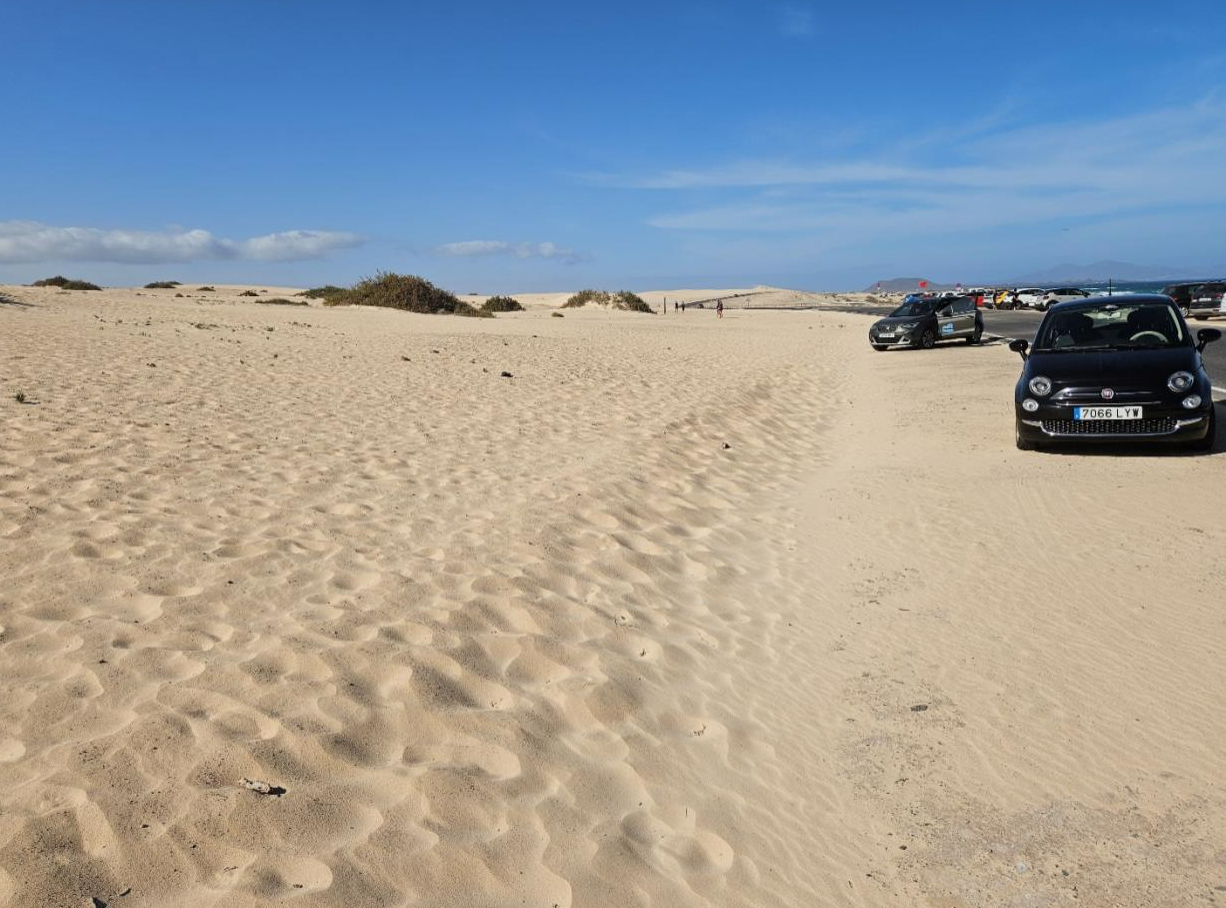
After overnighting in Gran Canaria, we took one of the delightful inter-island flights to Fuerteventura. This is an island famed for its volcanic rock and extraordinary sand dunes. The rock has almost no top-soil so there is a complete absence of vegetation and a near complete absence of insects. It is a remarkable place!
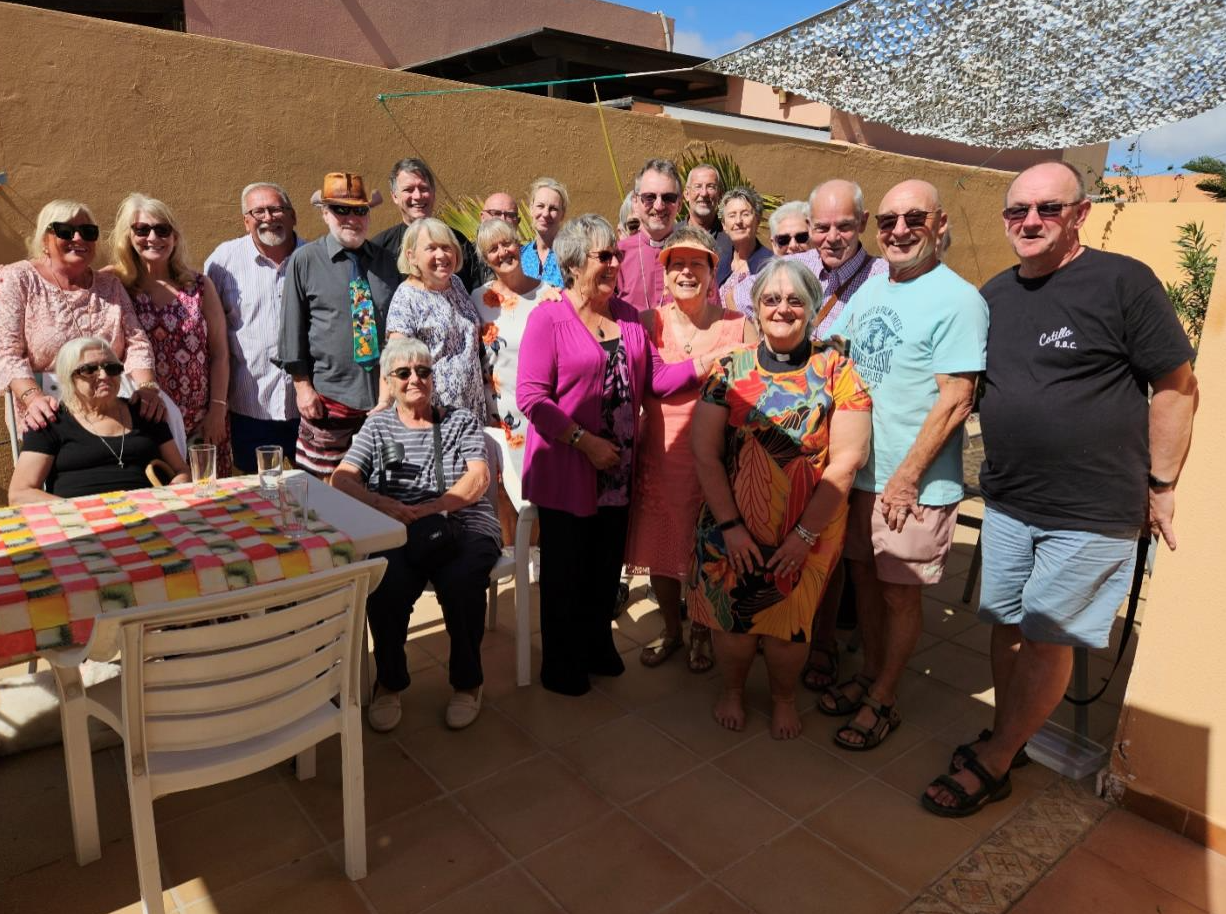
Canon Anne Brown is the newly appointed chaplain to the Anglican Community here. We met with the community at her home. We celebrated holy communion - again, half-inside and half-outside the house. I met the men who belong to the ‘Beer and Bible Club’, and the folk who gather midweek at one lady’s home for a swim in her pool followed by Bible Study. It was abundantly clear how very important the church is to its members, supporting them in bad times as well as good, and being a lifeline to those who perhaps unexpectedly find themselves bereaved and far from family. Anne and her husband Chris are newly arrived from Cornwall, and the church is evidently thrilled to have them.
Leaving Fuerteventura, we took another inter-island plane for the 55 minute flight to Tenerife North. In complete contrast to Fuerteventura, the northern part of Tenerife is covered in lush vegetation and produces bananas, avocados, tomatoes, potatoes and other delicious fruit and vegetables.
During the evening we met with the newly appointed Chaplain, the Reverend Fiona Jack, and some of her church officers. We had opportunity to see the fine views over the historic town of Puerta de la Cruz and to enjoy some local cuisine.
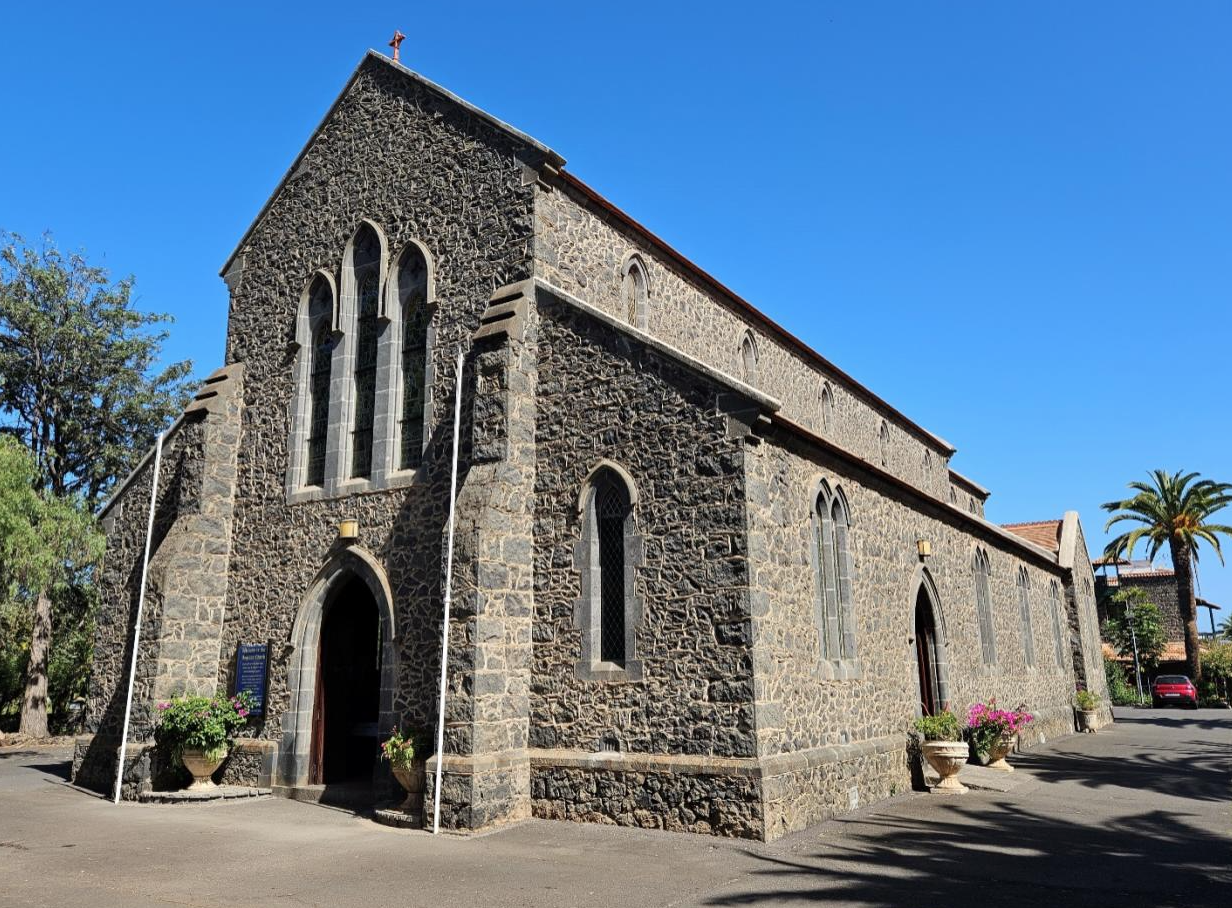
The following morning we gathered at All Saints Anglican Church, which is a well-fashioned late Victorian stone building. Children’s worker Judith Rigby proudly showed us a display of children’s work which fills the length of the north wall. We saw the memorial to the terrible 1980 Tenerife air disaster, which is still visited by family members who lost loved ones in this dreadful aviation tragedy. And we admired the beautiful ‘Light of the World’ painting on the South wall of the chancel, which would provide the theme for my sermon.
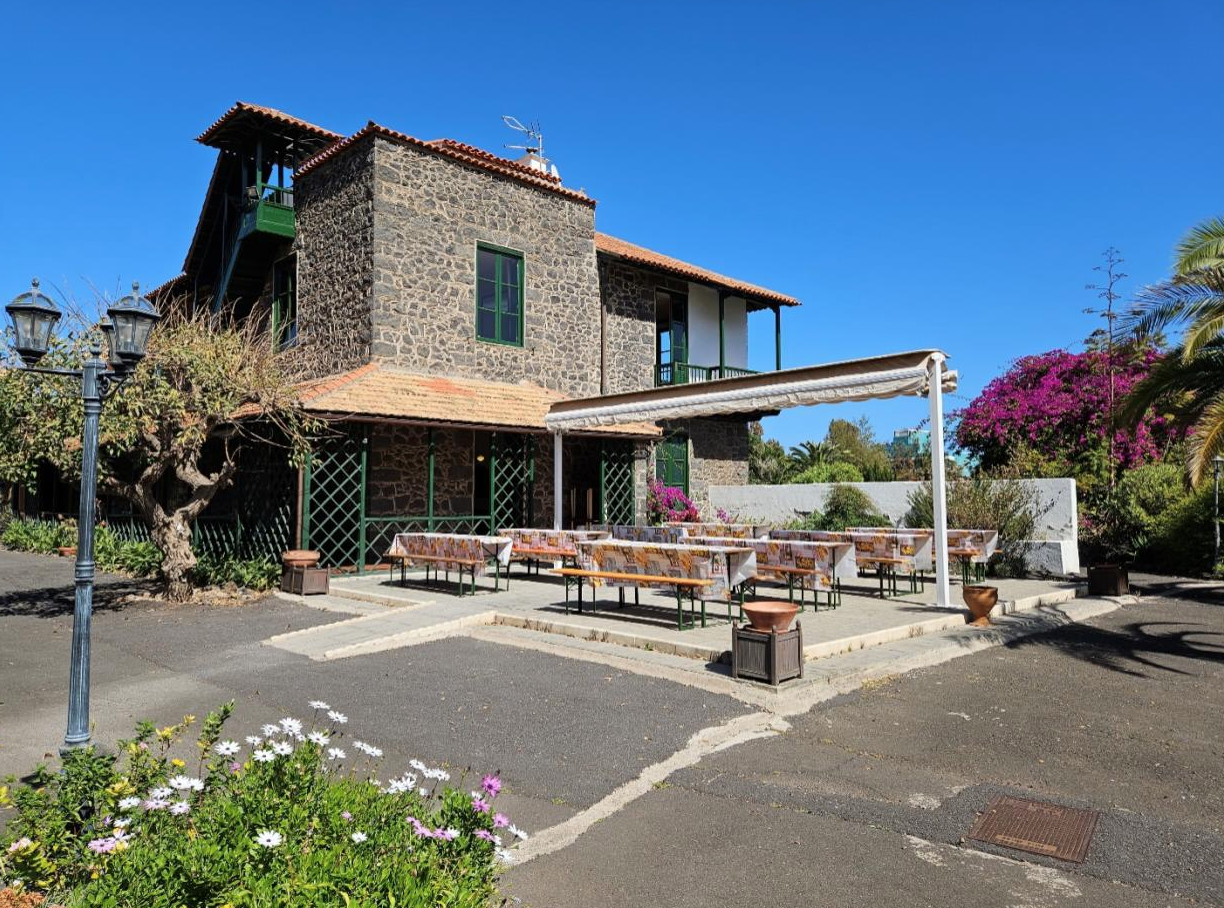
After looking around the church, we gathered in ‘the parsonage’, behind the church. This is a very large and spacious building which provides meeting rooms, offices for our sister German Lutheran Church and accommodation for the chaplain. Its style and proportions reminded me of some of the gracious colonial buildings I had seen on tea plantations in Sri Lanka. It was a pleasure to get to know Council members, share experiences and to say something about a diocese which can feel a thousand miles away.
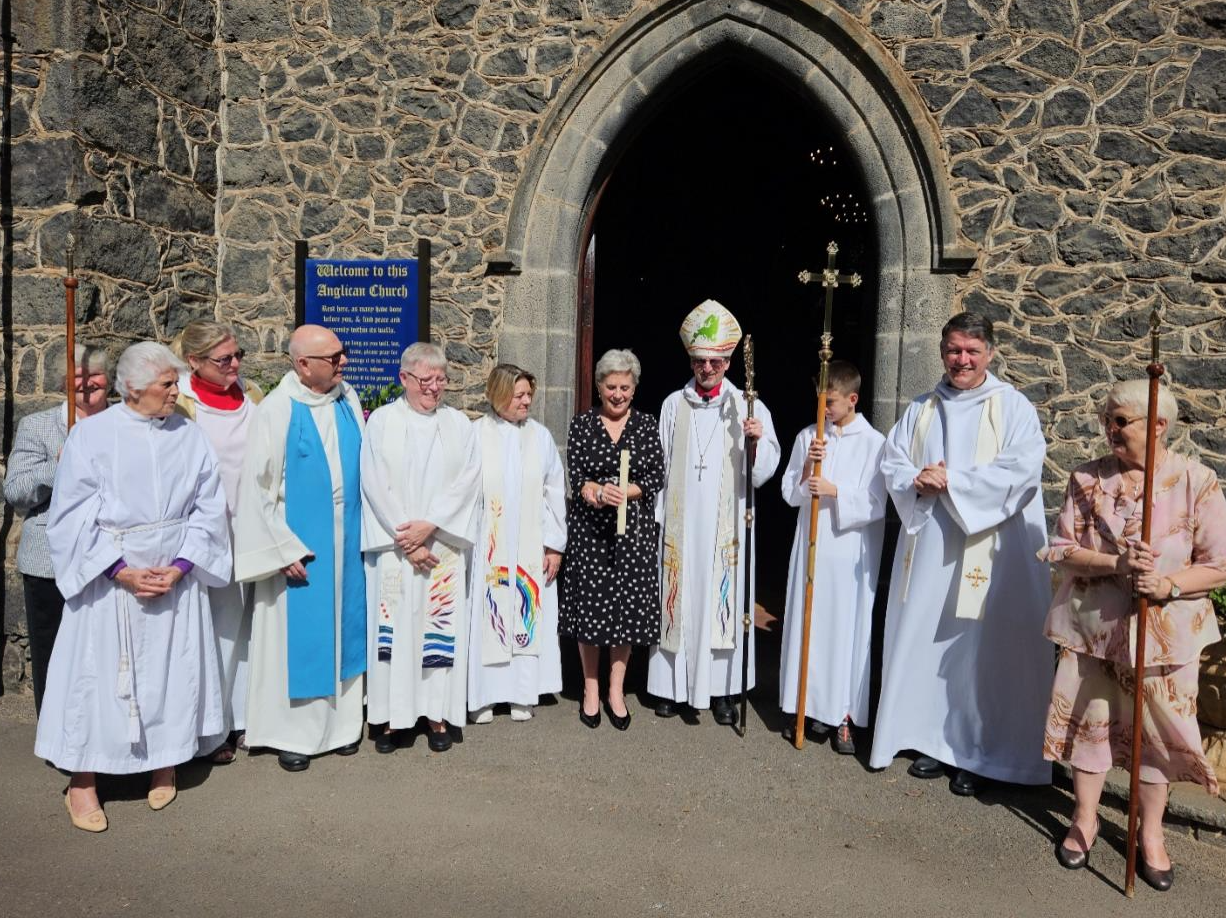
We held a confirmation service for just one very special candidate – Kath – a Scot, brought up in Africa by missionary parents, now married to a Canarian and integrated into a Canarian family but having found a spiritual home in this English-speaking Anglican church.
At this point, Archdeacon David left us to fly to Lanzarote, where he was booked to conduct the annual meeting. Meanwhile, Helen and I were driven over the mountains to the South of Tenerife by The Reverend John Poole. John has been in ministry in the Canaries for seven years, making him by far the most experienced in what is a mainly new team of incumbents.
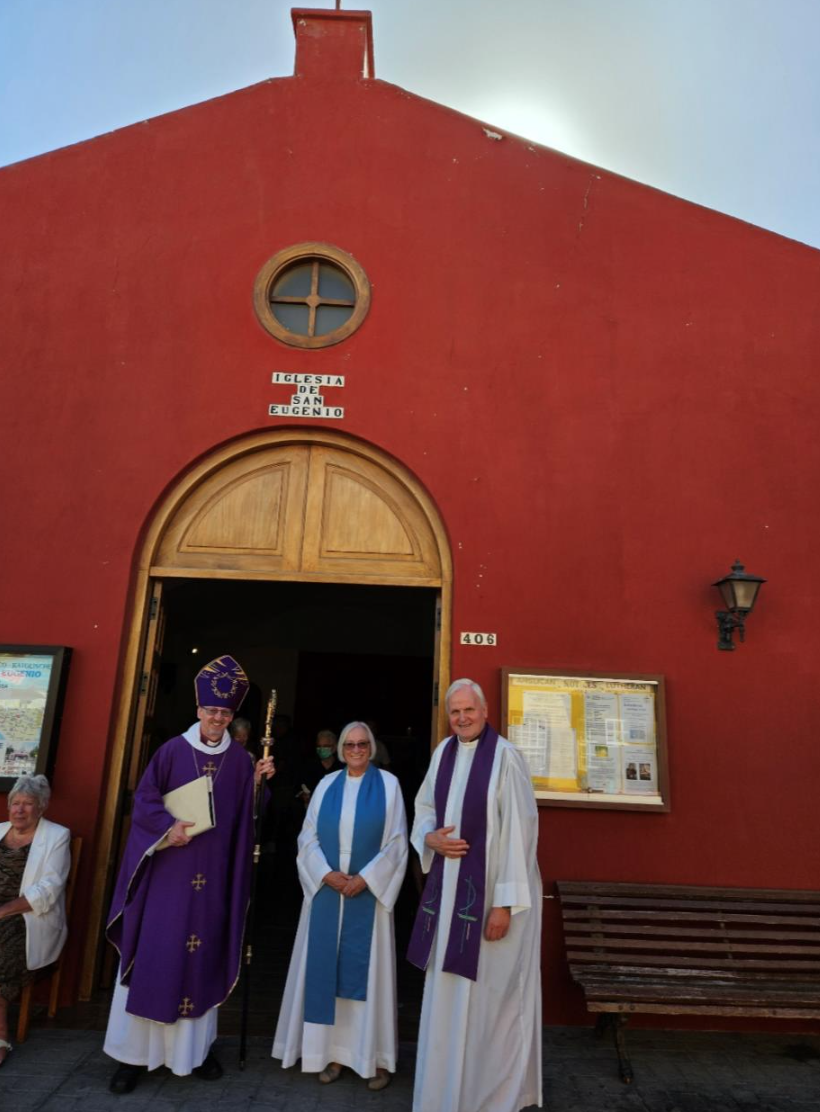
Pictured above with Lay Reader Marisha, John looks after three coastal congregations: San Eugenio, San Blas and Los Gigantes. Each Sunday he takes services in all three, whilst driving between them, which struck me as quite a demanding schedule. With his wife, Rosemary, John has served in several countries and cities (including Bucharest in our diocese). In an earlier life he also served in the Metropolitan Police, which seemed to me valuable for coping with the driving and particularly parking challenges of the job.
I was impressed by the strong and natural culture of welcome that exists in these communities. Post-Brexit, many British immigrants have discovered (some, perhaps, with buyers’ remorse) that they can only stay in the Canary Islands for 90 days in every 180 days. That means the church communities are made up of some permanent residents, a larger number of ‘swallows’ with varying periodicity of return, and an unpredictable number of visitors who may be on holiday for a few weeks or a couple of months. This requires a lot of flexibility and grace amongst those who sustain community and worship week by week. But I was left in no doubt as to the importance of the church to people in all these different situations.
A concluding reflection
The Canary Islands are an extraordinarily beautiful region, an almost Tolkienian paradise where the sun nearly always shines, the warm temperatures are moderated by an Atlantic breeze, and people seem to live healthier and longer than in the cool and damp conditions of northern Britain and Europe. But they are by no means exempt from the issues and difficulties that affect Europe as a whole.
In particular, many thousands of migrants are arriving each year on small boats from West Africa. Proportionately, these migrants represent a much bigger addition to the local population than equivalent migration in northern Europe. The Canaries are on the EU’s migration ‘front line’.
Sadly, some boats fail to locate these islands in the vast ocean, and are lost. For all who seek to make the journey, even if successful, it is truly perilous.
The day before leaving for the Canaries, I had been accompanying the Archbishop of Canterbury on a meeting with senior EU leaders in Brussels. Migration (along with the Ukraine War) had been one of the top two issues we discussed.
While visiting the Canaries, I could not help but wonder how it was that these islands off the West African coast were populated and governed by the Spanish (with significant infrastructure built by the British). There was once a native population: what, if anything, remains of their culture?
And today, how will these islands cope with the arrival of large numbers of people fleeing hopeless conditions in parts of Africa afflicted by climate change, poverty and war?
The answers to these questions go far beyond the islands themselves, to the EU and Europe as a whole, indeed to our whole global community.
- We must enable people as far as we can to live in peace and prosperity in the lands where they are born and belong. This is a long term issue of justice.
- When people are forced to move in order to find a viable life, as many sadly are, we must provide just and fair migration processes and safe routes of passage. Equally, firm action needs to be taken against those who profit from human trafficking.
- Eventually, people should have the right to return to their homelands, as and when conditions make this possible, and be protected and enabled to do so.
The Canaries are a deeply attractive place for northern Europeans to visit, to retire, to live. But they are not a place where one can retreat from the problems of the world. Indeed, some of those problems bear upon these islands particularly forcefully, and Christians need to respond with compassion and humanity after the example of Christ himself.
